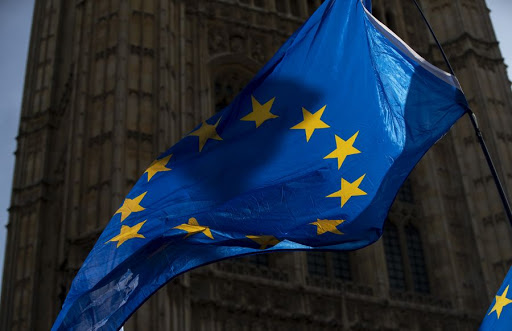
EU leaders wrangled over the details of a €1.85 trillion ($2.1 trillion) post-coronavirus recovery plan into the early hours on Monday, with EU Council President Charles Michel appealing for compromise.
The marathon summit in Brussels, which began on Friday, was set to resume on Monday afternoon. Initially scheduled to last just two days, the negotiations have so far failed to resolve key divisions between member states.
"At times it didn't look good last night, but I feel that, on the whole, we are making progress," Dutch Prime Minister Mark Rutte told reporters after the talks broke up. "We were very close to failure," he added. "Things can still fall apart."
Meanwhile, Austrian Chancellor Sebastian Kurz said he was satisfied with the round of discussions. "Tough negotiations have just come to an end and we can be very satisfied with today's result. We will continue in the afternoon," he said.
German Chancellor Angela Merkel warned on Sunday that it was still possible EU leaders may not arrive at an agreement on the unprecedented recovery package and long-term budget for the shattered EU economy.
Leaders remain deadlocked on the size of the package and what strings should be attached to the aid component meant to help the bloc's 27 members repair the damage caused by the pandemic.
There was no agreement among leaders on how much relief to provide in grants and how much to offer as loans, an anonymous source told Reuters news agency on Sunday evening. The diplomat said €350 billion was the maximum acceptable for a camp of thrifty northerners, compared to €400 billion seen as the minimum by many others, including Germany and France.
'Frugal four' seek smaller aid package
The size of the recovery package has been the biggest bone of contention as the Netherlands, along with Austria, Denmark, Sweden — the so-called "Frugal Four" — as well as Finland have put their weight behind a smaller fund and smaller portion of grants.
They demanded that any loans or grants should be accompanied by strict conditions to ensure the countries that are under heavy debt carry out labor market reform.
Germany and France have been pushing for an ambitious package of loans and subsidies to member states, and have repeatedly appealed for a compromise.
Franco-German walkout
Tensions heightened Saturday evening when Merkel and French President Emmanuel Macron got up and walked out of a meeting. Tempers flared again on Sunday, with Macron reportedly threatening another walkout.
The Franco-German alliance is seen as vital to any major deal within the 27-nation bloc.
Fresh plan wasn't enough
On Saturday, a revised plan was presented to the 27 leaders to try to break the deadlock. The proposal would see a reduction in the share of the free grants issued to EU states, and an "emergency brake" on the disbursement of funds.
The plan would also increase rebates on the core EU budget for Austria, Denmark and Sweden.
A lot is at stake for the leaders' first face-to-face summit since the pandemic was declared. The bloc faces its worst post-war recession and countries need cash fast to shore up their economies from pandemic-induced crises.
The 27-nation bloc's economy is estimated to contract 8.3% this year, according to the latest predictions.
Old resentments resurface
Before Sunday's talks resumed with a "cold plate" dinner, Hungarian Prime Minister Viktor Orban accused Rutte of hating him personally and wanting to "punish" his country.
Hungary, along with Poland and Slovenia, is resisting possible strings tied to EU aid, including over rule of law violations. Speaking to reporters, however, Orban insisted he was not opposed to reform, only that it would take time. He then launched into a tirade against the Dutch leader.
"I don't know what is the personal reason for the Dutch prime minister to hate me or Hungary. But he is attacking so harshly and making very clear that because Hungary in his opinion does not respect the rule of law it must be punished financially," Orban said. "That's his position, which is not acceptable because there is no decision about what is the rule of law situation in Hungary," he added.
Orban said he initiated a proposal during the summit "to ask the Germans to give a guarantee that the European Council of EU will negotiate and make a decision on the rule of law procedure against Hungary."